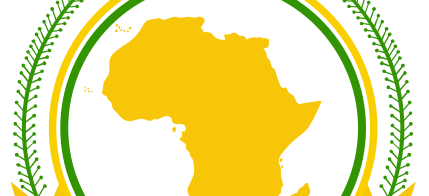The Peace and Security Council of the African Union (AU), at its 353rd meeting held at the level of Heads of State and Government, on 25 January 2013, adopted the following decision on the situation between the Republic of Sudan and the Republic of South Sudan:
Council,
- Takes note of the Report of the AU High-Level Implementation Panel (AUHIP) on Sudan and South Sudan (AUHIP), on the situation between Sudan and South Sudan [PSC/AHG/3.(CCCLIII)], as well as of the introductory remarks of the Chairperson of the Commission and the briefings given by the Commissioner for Peace and Security and the Chairperson of the AUHIP. Council also takes note of the statements made by the representatives of the Republic of Sudan and the Republic of South Sudan, as well as those made by Ethiopia, in its capacity as the Chair of the Inter-Governmental Authority on Development (IGAD), and the United Nations;
- Recalls its previous communiqués on Sudan and South Sudan ;
- Commends the AUHIP and its members, former Presidents Thabo Mbeki, Abdulsalami Abubakar and Pierre Buyoya, for their sustained efforts to assist the Parties to establish cooperative relations towards achieving the goal of two mutually viable states. Council also expresses its appreciation to the Chair of IGAD, the Prime Minister of Ethiopia, Haile Mariam Desalegn, for his continued support to the efforts of the AUHIP and the two Parties;
- Recalls resolution 2046 (2012) adopted by the UN Security Council, on 2 May 2012, which endorsed the Roadmap adopted by Council, on 24 April 2012. In this respect, Council commends the United Nations, in particular the Special Envoy of the Secretary-General, Haile Menkerios, and the UN Interim Security Force for Abyei (UNISFA), as well as other bilateral and multilateral partners, for their continued support to the AU-led efforts;
- Commends the continued willingness of President Omar Hassan Al Bashir and President Salva Kiir Mayardit to meet with a view to narrowing their differences, in order to arrive at common solutions to the outstanding issues in their bilateral relations. Council expresses concern, nonetheless, that despite their engagements and the progress that has been made to reach consensus between the two sides, some differences still persist, which have slowed progress in the implementation of the 27 September 2012 Agreements;
- Expresses appreciation that the situation along the border between Sudan and South Sudan remains calm overall, in spite of isolated incidents, while noting with concern that the situation nonetheless remains tense, with the continued threat of escalation;
- Reiterates its concern at the continued lack of implementation, by the Governments of the Republic of South Sudan and Sudan, of the Agreements reached on 27 September 2012. In particular, Council expresses its deep concern at any decision by a Party to link the implementation of certain Agreements, in which there is full concurrence, to the resolution of differences of interpretation on other Agreements. Council stresses the need for both Parties to unconditionally implement all the Agreements they have concluded in their entirety, and with utmost urgency, as these Agreements represent an opportunity for the Parties to build two mutually viable States living side-by-side, at peace with one another. Council stresses to the Parties that, while the Implementation Matrix, developed at the request of the Presidents of the two countries, is an important tool for the coordinated implementation of all Agreements, it should in no way be used to prevent, delay or obstruct the implementation of any of the Agreements;
- Requests the AUHIP, in line with its report to Council, to support the Parties in developing and applying the mechanisms for the implementation and monitoring of the Agreements referred to in paragraph 7 above. Councilfurther requests the Panel to report to it, after 3 months, on the overall status of implementation of all the Agreements and obligations of the Parties, which report should include recommendations on the strengthening of the AU’s support to the process in line with the previous decisions of Council;
- Urges the Parties to immediately implement the Agreement on Security Arrangements, in particular through the establishment of the Safe Demilitarized Border Zone (SDBZ). Council stresses that disagreement on any particular part of the SDBZ should not prevent its establishment, and the resolution of any disagreement should be pursued within the framework of the Joint Political and Security Mechanism (JPSM);
- Expresses its disappointment at the delay in the implementation of the 20 June 2011 Agreement on Temporary Arrangements for the Administration and Security of the Abyei Area. In this regard, Council urges the Parties to uphold the spirit in which the compromises which made the Temporary Arrangements Agreement possible were reached, in order to facilitate the establishment of Abyei Area Council. Council stresses the importance of implementing the Temporary Arrangements Agreement in all its aspects, as a crucial step to facilitate the continued return of displaced persons, as well as the resumption of normal life and livelihoods of the population of Abyei;
- Reaffirms that the Proposal submitted by the AUHIP, on 21 September 2012, on the Final Status of the Abyei Area represents a fair, equitable and workable solution to the dispute, which takes into account existing agreements and antecedents, as well as the needs and interests of the communities on the ground. In this regard, Councilwelcomes the joint commitment by President Omar Hassan Al Bashir and President Salva Kiir Mayardit, as expressed at the end of their Summit meeting, on 5 January 2013, to continue their engagement on the Final Status of the Abyei Area. Council strongly urges the two leaders to resume their negotiations, including on the key issue of the formation of the Abyei Area Referendum Commission, on



